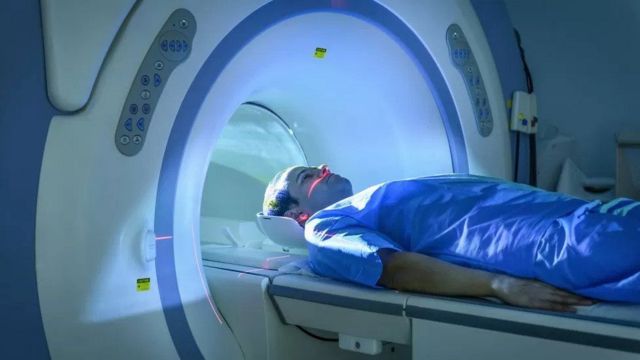Scientists have analyzed MRI scans of patients with “long COVID” for the first time. In a third of people with long COVID, scientists have discovered abnormalities in the functioning of internal organs months after they have been discharged from hospital. These are the findings of a new study aimed at finding treatments for those who cannot return to normal life for months after being infected with Covid-19.
In a study published in The Lancet, scientists examined MRI scans of COVID-19 patients who had experienced symptoms for a long time after contracting the virus. Analysis of the images showed that the lungs, brain and kidneys were three times more likely to be affected in people with “long COVID” than in controls who did not have COVID-19.
The number of participating patients with COVID-19 was 259. All of them had a severe course of the disease leading to hospitalization. Five months after discharge, they underwent MRI of their major organs. These images were compared by the researchers with the MRIs of a control group of 52 people.
Damage to the lungs was almost 14 times more common in patients with a prolonged course of Covid, while abnormalities related to the kidneys and brain were three and two times more common, respectively, than in members of the control group.
The degree of organ damage in many people depended on the severity of the infection, age, and the presence of other diseases. People with multiple organ abnormalities were four times more likely to report serious mental and physical impairments that prevented them from carrying out daily activities, noted lead study author Betty Raman, a specialist in cardiovascular disease at the University of Oxford.
The research provides “concrete evidence of changes in a number of organs” after people are hospitalized with Covid-19, according to Christopher Brightling, co-author of the study and professor of respiratory medicine at the University of Leicester. At the same time, he urges colleagues and the general public not to view this information as a cause for alarm, but rather as an opportunity to take a step forward and develop treatments for people with “long COVID”.
Experts estimate that millions of people around the world continue to suffer weeks or months after contracting the virus, unable to return to normal life. Many experience symptoms such as shortness of breath, fatigue and mental fog, while for some, COVID-19 progresses into a severe chronic disease. Exactly how Covid causes such a wide range of symptoms remains unknown.


